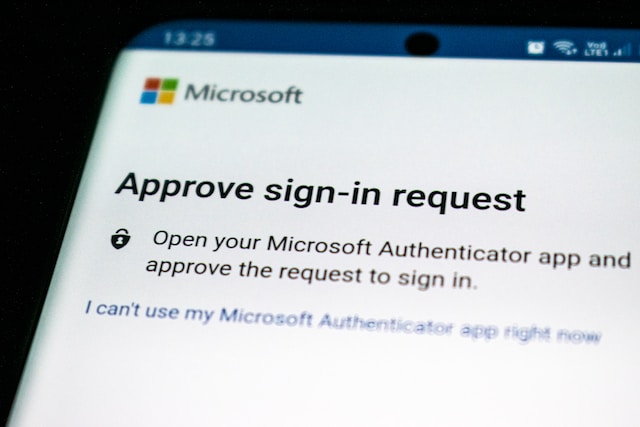Two-factor authentication (2FA) is a security process that adds an extra layer of protection to your online accounts and systems.
- 2FA requires two forms of identification: something you know (like a password) and something you have (like a mobile phone or security key).
- 2FA can significantly reduce the risk of unauthorized access and protect your sensitive information from cyber threats.
- Most major websites and services offer 2FA as an option, and you should enable it wherever possible.
- There are different types of 2FA, including SMS-based, app-based, hardware-based, and biometric-based authentication.
In today's digital age, security breaches are becoming more and more common. Cybercriminals are constantly finding new ways to steal personal information and compromise online accounts. To stay ahead of these threats, it's important to take proactive measures to protect yourself. One such measure is two-factor authentication (2FA).
What is Two-Factor Authentication?
Two-factor authentication is a security process that requires two forms of identification to access an account or system. The two factors are typically:
- Something you know, such as a password or PIN.
- Something you have, such as a mobile phone, security key, or fingerprint.
The idea behind 2FA is that even if someone knows your password, they won't be able to access your account without the second factor of authentication. This makes it much harder for cybercriminals to gain access to your sensitive information.
Why Do You Need Two-Factor Authentication?
With the increasing amount of personal information we store online, it's more important than ever to protect ourselves from cyber threats. Here are a few reasons why you should consider using 2FA:
- Reduce the risk of unauthorized access - 2FA significantly reduces the risk of unauthorized access to your accounts and systems. Even if someone manages to obtain your password, they won't be able to log in without the second factor of authentication.
- Protect your sensitive information - By adding an extra layer of protection, 2FA can help keep your sensitive information safe from cybercriminals.
- Comply with industry regulations - Many industries, such as healthcare and finance, are required to comply with strict data security regulations. Implementing 2FA can help ensure you're meeting these requirements.
- Increase trust with customers - If you're a business owner, offering 2FA to your customers can increase trust and confidence in your brand. It shows that you take security seriously and are committed to protecting their information.
Types of Two-Factor Authentication
There are several types of 2FA, each with its own pros and cons. Here's a brief overview of the most common types:
- SMS-based authentication - This method sends a one-time code to your mobile phone via SMS. You'll need to enter the code to log in to your account.
- App-based authentication - This method uses a mobile app, such as Google Authenticator or Authy, to generate a one-time code. The app is synced with your account, and you'll need to enter the code to log in.
- Hardware-based authentication - This method uses a physical security key, such as a YubiKey, to authenticate your login. The key is inserted into your computer's USB port and verifies your identity.
- Biometric-based authentication - This method uses a physical characteristic, such as your fingerprint or face, to authenticate your login. It's often used in conjunction with other forms of authentication for added security.
FAQs
Is two-factor authentication necessary?
While 2FA is not mandatory, it is highly recommended as an additional layer of security to protect your online accounts and sensitive information.
How do I set up two-factor authentication?
Setting up 2FA varies depending on the website or service you're using. However, most platforms have a settings menu where you can enable 2FA and choose the type of authentication you prefer.
What happens if I lose my second factor of authentication?
If you lose your second factor of authentication, such as your mobile phone or security key, you may be locked out of your account. It's important to have backup methods in place, such as backup codes or a backup security key, to ensure you can still access your account.
Can two-factor authentication be hacked?
While no security measure is 100% foolproof, 2FA significantly reduces the risk of unauthorized access. However, it's important to follow best practices such as choosing a strong password and keeping your devices and software up to date to further enhance your security.
Two-factor authentication is a crucial security measure that adds an extra layer of protection to your online accounts and systems. By requiring two forms of identification, 2FA can significantly reduce the risk of unauthorized access and keep your sensitive information safe from cyber threats. With various types of 2FA available, it's easy to find a method that works best for you. So if you haven't already, consider enabling 2FA wherever possible and take the necessary steps to protect yourself online.



